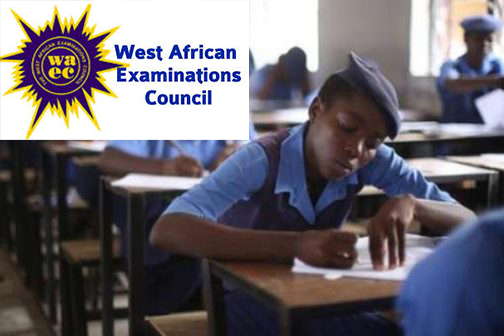Protecting Individuals and Businesses from Cybercrime In Nigeria: A Legal Perspective

Introduction
The rapid digitalization of our world has brought about immense benefits, but also new and evolving threats. Cybercrimes have become a major challenge facing both individuals and businesses, with devastating consequences. In Nigeria, the situation is particularly acute, as the country has become a hotbed of cybercriminal activity in recent years.
This essay will examine the current landscape of cybercrimes impacting individuals and businesses in Nigeria, the key vulnerabilities that enable these crimes, and the legal and regulatory frameworks in place to combat them. It will then propose a comprehensive strategy to enhance cybersecurity protections and empower Nigerians to navigate the digital world with confidence.
The Cybercrime Landscape in Nigeria
Individuals and businesses in Nigeria are highly vulnerable to a wide range of cybercrimes, from financial fraud and identity theft to malware attacks and ransomware. These crimes can result in substantial financial losses, reputational damage, and severe disruption to personal and professional lives. Addressing this threat is of paramount importance, as cybercrime not only harms victims, but also undermines economic development, erodes trust in digital systems, and poses broader national security risks.
The scale and sophistication of these crimes have escalated significantly in recent years, driven by a combination of factors, including high youth unemployment, widespread internet and mobile penetration, and lax enforcement of cybersecurity laws.
The most prevalent forms of cybercrime targeting individuals in Nigeria include:
1. Financial Fraud: Nigerians are regularly subjected to various financial scams, such as business email compromise (BEC), romance scams, and advance fee fraud (also known as “419” scams). These crimes often result in the loss of substantial sums of money, as well as the compromise of personal financial information.
2. Cyberbullying and Harassment: Social media platforms have become breeding grounds for online harassment, with Nigerian women and children particularly vulnerable to stalking, threats, and the non consensual sharing of intimate images. Individuals may be the victims of persistent, threatening, or intimidating behavior through digital channels, such as social media or email.
3. Identity Theft: Cybercriminals may illegally access and steal sensitive personal or financial information, such as login credentials, credit card numbers, or social security numbers, to commit fraud or sell on the dark web.
4. Online Fraud and Scams: Criminals may use phishing, spoofing, or other social engineering tactics to trick individuals or businesses into revealing sensitive information or making fraudulent transactions.
5. Cyberattacks on Critical Infrastructure: Hackers may target vital systems, such as power grids, transportation networks, or healthcare facilities, with the aim of causing widespread disruption and harm.
6. Distributed Denial of Service (DDoS) Attacks: Cybercriminals have launched DDoS attacks against Nigerian businesses, overwhelming their networks and disrupting operations, often as a precursor to further extortion attempts.
7. Data Breaches: Lax cybersecurity practices and outdated infrastructure have made Nigerian businesses vulnerable to data breaches, resulting in the theft of sensitive customer and proprietary information.
Legal and Regulatory Framework on Cybercrime In Nigeria
1. The Cybercrime (Prohibition, Prevention, Etc.) Act, 2015:
This Act is the primary legal framework for addressing cybercrime in Nigeria. It criminalizes a wide range of cybercrime activities, including unauthorized access to computer systems, data theft, and the spread of malware. The Act also establishes the Cybercrime Advisory Council and the National Cybersecurity Strategy to coordinate the country’s efforts in combating cybercrime.
2. The Nigerian Data Protection Regulation (NDPR):
Introduced in 2019, the NDPR is a set of guidelines that aim to protect the personal data of individuals, including the vulnerable, from unauthorized access, use, or disclosure. The regulation requires organizations to obtain valid consent from individuals before collecting and processing their personal data, and it imposes penalties for non-compliance.
3. The Central Bank of Nigeria (CBN) Cybersecurity Frameworks:
The CBN, as the regulatory body for the financial sector, has issued various cybersecurity frameworks and guidelines to ensure that financial institutions, including banks and fintech companies, have adequate measures in place to protect their customers’ data and prevent cybercrime-related incidents.
4. The National Information Technology Development Agency (NITDA) Guidelines:
NITDA, the government agency responsible for regulating the information technology sector, has issued several guidelines and standards to promote the adoption of cybersecurity best practices among businesses and individuals, particularly the vulnerable SMEs.
While these legal and regulatory frameworks have been instrumental in addressing the cybercrime problem in Nigeria, there are still significant challenges in their effective implementation and enforcement, particularly in protecting the vulnerable segments of the population.
Protecting Businesses
Businesses face unique challenges in defending against cybercrime, as they are often targeted for their valuable data, sensitive information, and critical infrastructure. Effective |
business protection strategies include:
1. Comprehensive Cybersecurity Practices: Businesses should implement a robust cybersecurity program that includes regularly updating software, implementing access controls, conducting employee training, and regularly testing incident response plans.
2. Regulatory Compliance: Businesses must ensure compliance with relevant cybersecurity and data protection regulations, such as GDPR or CMMC, to avoid costly penalties and legal liabilities.
3. Cyber Insurance: Businesses should consider investing in comprehensive cyber insurance coverage to mitigate the financial impact of potential cyberattacks and data breaches.
4. Incident Response and Business Continuity Planning: Businesses should develop and regularly test detailed incident response and business continuity plans to ensure they can effectively respond to and recover from a cybersecurity incident.
5. Collaboration and Information Sharing: Businesses should engage with industry organizations, government agencies, and law enforcement to share threat intelligence, best practices, and participate in coordinated efforts to combat cybercrime.
6. Legal Recourse and Representation: Businesses that have been the victims of cybercrime should seek legal counsel to explore their options for civil litigation, criminal prosecution, and other legal remedies.
Conclusion
Cybercrime poses a significant and ever-evolving threat to both individuals and businesses in the digital age. Addressing this challenge requires a comprehensive approach that combines legal frameworks, regulatory oversight, and practical security measures. By understanding the various types of cybercrime, recognizing vulnerabilities, and implementing robust protection strategies, individuals and businesses can better safeguard themselves against the devastating impacts of these criminal activities.




